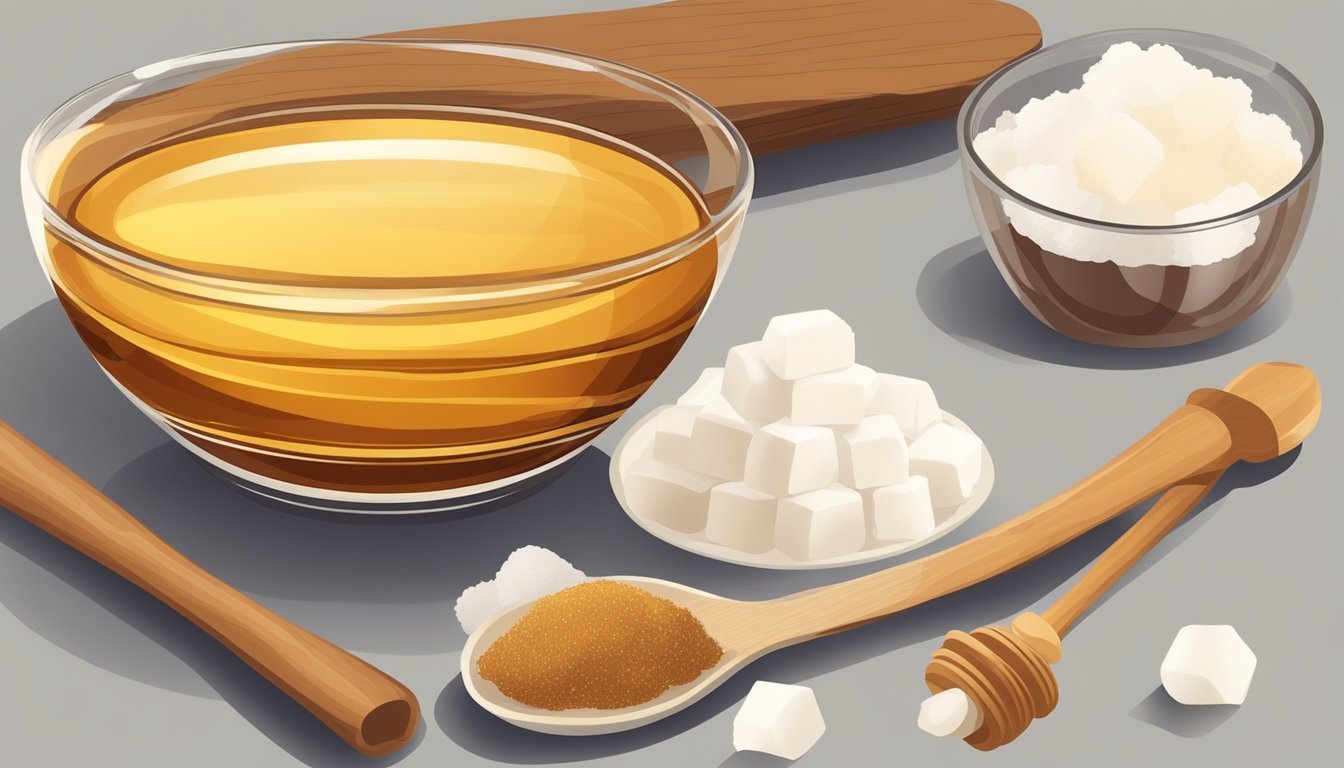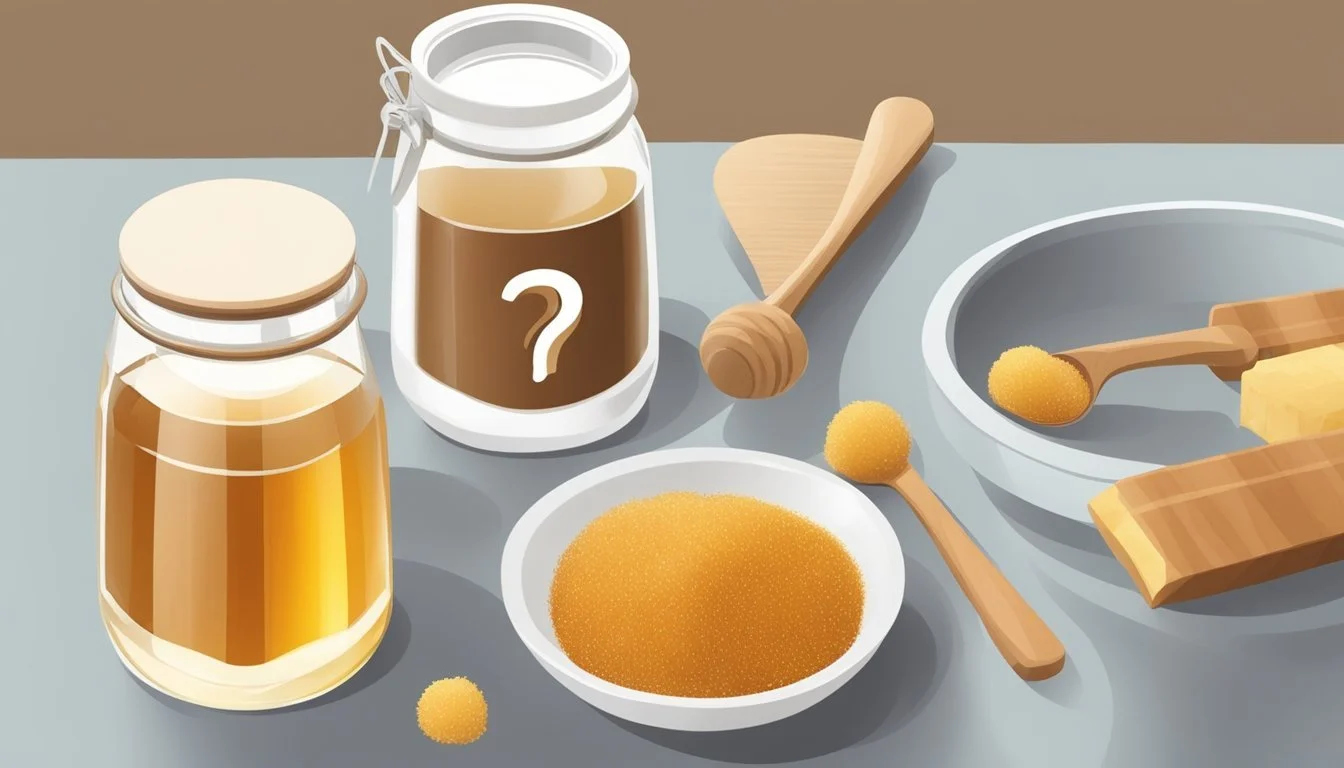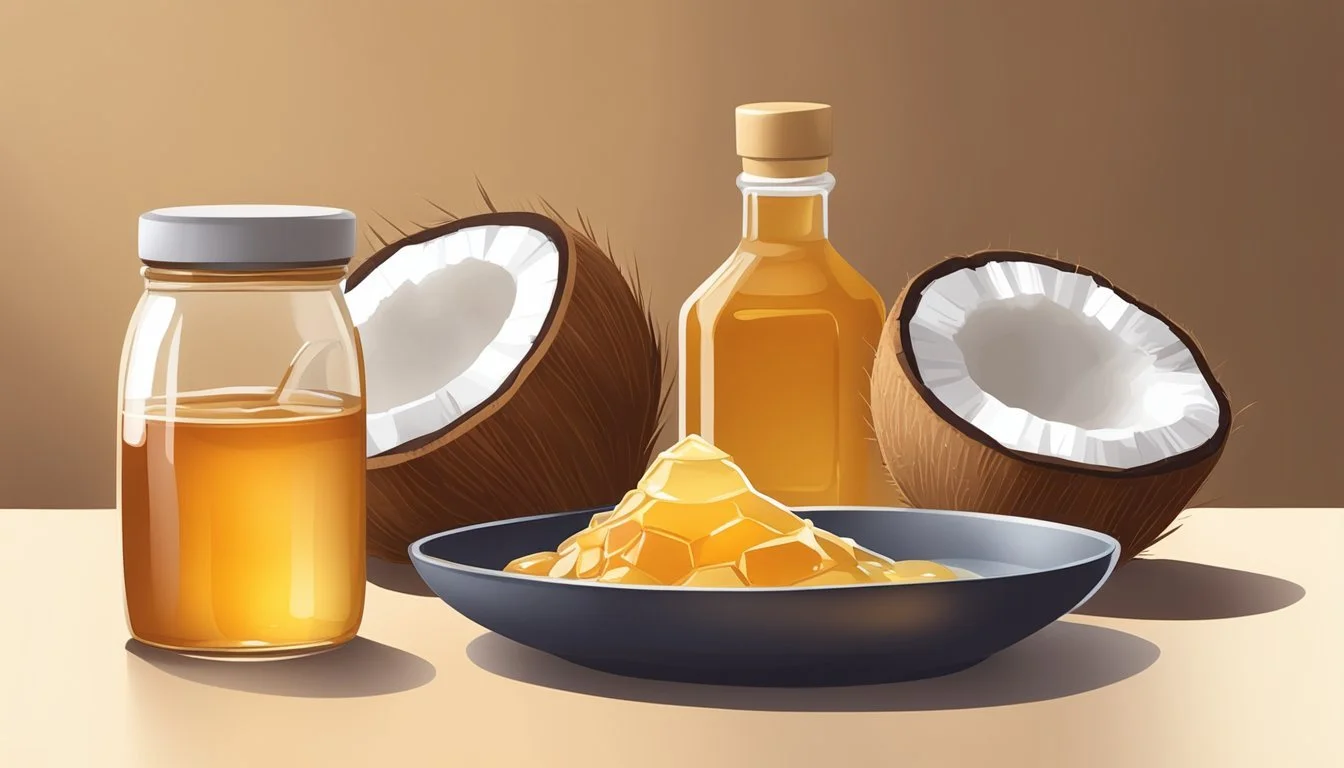Are Unrefined Sugars Healthier?
Debunking Myths About Natural Sweeteners vs. White Sugar
Unrefined sugars, such as honey, maple syrup, and coconut sugar, often surface in conversations about healthier alternatives to white table sugar. These natural sweeteners provide a different spectrum of flavors and are perceived to retain more of their natural nutrients because they undergo less processing than white sugar. Honey and maple syrup contain trace amounts of vitamins and minerals not found in table sugar, while coconut sugar offers short-chain fatty acids, polyphenols, and antioxidants. However, when it comes to caloric content, all of these sweeteners, including white sugar, share similar calorie levels per teaspoon.
The discussion surrounding these unrefined sugars typically considers their glycemic index (GI), which is a measure of how quickly foods raise blood sugar levels. Generally, foods with a lower GI are preferred for maintaining stable blood sugar. Natural sweeteners like pure maple syrup have a lower glycemic index compared to white sugar, which may contribute to a less immediate spike in blood glucose levels upon consumption. However, despite these potential benefits, it should be noted that maple syrup, honey, and coconut sugar are still forms of added sugar. Their consumption should be moderated in line with dietary guidelines to minimize health risks associated with high sugar intake.
While some advocates suggest that unrefined sugars are better for health due to their trace nutrients and lower GI, nutrition experts emphasize that sugar, regardless of its source, should be consumed in moderation. The overarching consensus is that an excess intake of any sugar contributes to various health issues, including cardiovascular disease and type 2 diabetes. Thus, while unrefined sugars may provide minimal advantages, they are not a healthy substitute for white sugar in terms of free license for high consumption.
Understanding Sugars and Sweeteners
Sugars and sweeteners can be broadly categorized into natural sugars, refined sugars, and unrefined sugars. Natural sugars are found intrinsically in whole fruits, vegetables, and dairy. Refined sugars, such as regular table sugar, undergo processing to strip away molasses and thereby create a finer crystal. Unrefined sugars, including honey, maple syrup, and coconut sugar, retain some of the natural molasses.
Table of Sugar and Sweetener Types:
Sweetener Type Common Examples Characteristics Natural Sugars Fructose, Lactose Found in fruits, dairy, unprocessed Refined Sugars Table Sugar (Sucrose) Processed to remove impurities, no molasses Unrefined Sugars Honey, Maple Syrup Less processed, contains trace nutrients
It is important to note that all sugars comprise sucrose, fructose, and glucose in varying proportions. While the body may metabolize these sugars slightly differently, the caloric value is often similar.
when comparing sweeteners:
Refined sugar typically comes in a granulated form and is 99.95% sucrose.
Unrefined sugars, whether solid or liquid, contain varying percentages of water and sucrose, along with minimal amounts of nutrients.
Added sugars, whether refined or unrefined, contribute to the total daily intake of sugar and should be consumed within recommended limits as excessive consumption can lead to negative health impacts.
The debate around unrefined versus refined sugars often focuses on the potential health benefits of the minimal nutrients found in unrefined sugars. However, these nutrients present in small amounts do not necessarily make unrefined sugars a healthier option when consumed in excess.
In the context of a balanced diet, it is advised to moderate the intake of sweeteners, recognizing that the body treats all sugars similarly from a metabolic standpoint.
Nutritional Profiles of Different Sugars
The nutritional value of sugars is often assessed by their vitamin and mineral content as well as the presence of fiber, which can influence the overall health impact of these sweeteners.
Mineral and Vitamin Content
Different sugars come with varying levels of mineral and vitamin content. Honey is known for containing trace amounts of vitamins like B6 and vitamin C, as well as minerals such as iron, calcium, and potassium. It also contains antioxidants and other plant nutrients. Maple syrup similarly includes minerals like zinc and manganese and a modest amount of calcium, iron, and potassium. Coconut sugar retains some of the nutrients found in the coconut palm, mostly iron, zinc, calcium, and potassium, as well as some short-chain fatty acids, polyphenols, and antioxidants. Raw sugar and white sugar (refined) have the least mineral content, as molasses – which contains minerals – is removed during the refining process. However, raw sugar does still contain a small amount of molasses, so it offers slightly more nutrients than its fully refined counterpart.
Sugar Type Notable Minerals Notable Vitamins Antioxidants Honey Iron, Calcium, Potassium Vitamin B6, C Present Maple Syrup Zinc, Manganese Present Coconut Sugar Iron, Zinc, Calcium Present Raw Sugar Traces of Minerals Minimal White Sugar Absent
The Role of Fiber in Sugars
Fiber in sugars is typically minimal to none, especially in highly refined options like white sugar. However, the processing of natural sugars can retain trace amounts. Neither honey, maple syrup, nor coconut sugar contain significant amounts of fiber. The fiber in whole foods, such as the fruits from which some sugars originate, is largely lost during the processing to extract sugar. However, fiber plays a critical role in modifying the body’s digestion of sugars. Dietary fiber helps slow the absorption of sugar, which can prevent spikes in blood glucose levels, contributing to a lower glycemic index in fiber-rich sweeteners compared to those without fiber.
Health Effects of Sugar Consumption
Sugar consumption is a critical component of nutrition that affects blood sugar levels, chronic disease risk, and weight management. Understanding the role sugar plays in diet and health can guide better dietary choices.
Blood Sugar and Glycemic Index
The glycemic index (GI) is a measure of how quickly foods raise blood sugar levels. Unrefined sugars like honey, maple syrup, and coconut sugar often have a lower GI compared to white table sugar, which means they may lead to a slower rise in blood sugar levels when consumed. However, nutritionists caution that even natural sugars must be consumed in moderation to maintain optimal blood sugar levels.
Sugar's Impact on Chronic Diseases
Chronic diseases such as diabetes and heart disease have been associated with high intake of added sugars. Dietitians warn that excessive sugar consumption, irrespective of its source, can contribute to these conditions. Whether refined or unrefined, sugars deliver similar calories and can affect the body's insulin response and lipid profiles, underscoring the importance of a diet low in added sugars for reducing chronic disease risk.
Weight Management and Sugar Intake
Maintaining a healthy weight often involves managing calorie intake, including those from sugars. Unrefined sugars contain nearly the same calorie count per gram as refined table sugar, so substituting one for the other does not significantly impact weight management efforts. Instead, individuals should focus on overall moderation of sugar intake and listening to hunger cues as part of a balanced diet to avoid weight gain.
Sugar in Our Diets
Sugars play a multifaceted role in modern diets, extending from culinary uses to health impacts. This section examines the various types of sugars, their functions in food preparation, and their nutritional implications.
Role of Sugars in Cooking and Baking
Sugars, including table sugar (sucrose), honey, maple syrup, and others, are fundamental in cooking and baking. They impart sweetness and can also contribute to the texture and color of baked goods. For instance, sugars are responsible for the browning of baked goods due to the Maillard reaction. Sugars also act as preservatives in jams and jellies, and they provide food for yeast in bread dough, enabling it to rise.
Comparing Sugar Alternatives
In the pursuit of healthier diets, many turn to sugar alternatives. Artificial sweeteners like stevia and agave nectar offer sweetness without the calories of sucrose. However, despite being marketed as healthier, these substitutes' effects on health are still a subject of ongoing research. High-fructose corn syrup, often found in processed foods, is another alternative, but its health implications have led to widespread concern. Products labeled as "made with whole grains" or "whole foods" may still contain added sugars, albeit sometimes in the form of unrefined sugars like honey or maple syrup.
Table Sugar (Sucrose): 99.95% total sugar
Granulated Unrefined Sugar: Approximately 97% total sugar
90-95% sucrose
2-7% glucose and fructose
Understanding Added Sugars and Free Radicals
Added sugars refer to sugars that are not naturally present in whole foods and are added during processing. Excessive intake of added sugars is linked with negative health outcomes, including a higher risk for cardiovascular disease. Furthermore, the overconsumption of sugars can contribute to the generation of free radicals, harmful compounds that can cause oxidative stress and damage cells. It is essential to understand the presence of added sugars in the diet, regardless of whether they come from refined or unrefined sources.
Sugar Recommendations and Dietary Advice
When assessing sugar consumption, it's crucial to understand the guidelines on recommended intakes and heed the counsel provided by health experts. Proper sugar management is vital for maintaining balanced blood sugar levels, which in turn supports overall health.
Recommended Sugar Intakes
The dietary guidelines suggest that added sugars should make up less than 10% of a person's daily caloric intake. For someone consuming 2,000 calories per day, this equates to about 50 grams of sugar. Notably, certain health organizations advocate for more stringent limits. For instance, the American Heart Association recommends a maximum of 25 grams for women and 38 grams for men. These suggestions aim to mitigate the risk of chronic diseases and to promote more nutritious food choices.
Advice from Health Professionals
Health professionals, including registered dietitians and nutritionists, emphasize moderation in the consumption of all sugars, whether refined or unrefined. They acknowledge that while unrefined sugars like honey, maple syrup, and coconut sugar contain trace nutrients, they should still be consumed sparingly due to their caloric content and potential impact on blood sugar levels. These experts commonly advise that the liver can metabolize only a limited amount of sugar efficiently, underscoring the importance of moderation. They encourage individuals to follow a well-rounded diet rich in fruits, vegetables, and whole grains while monitoring sugar intake to maintain a healthy lifestyle.
Sugars in Various Diets and Lifestyles
In examining the role of unrefined sugars within various diets and lifestyles, it's imperative to consider their nutritional nuances and how they align with dietary principles and health goals.
Sugars in Plant-Based Diets
In plant-based diets, which prioritize vegetables, fruits, whole grains, nuts, seeds, and legumes, unrefined sugars like honey, maple syrup, and coconut sugar can serve as natural sweeteners. Vegans, however, typically do not consume honey, as it is an animal-derived product, and would instead opt for plant-derived unrefined sweeteners. The choice of unrefined over refined sugars aligns with the plant-based emphasis on minimally processed foods, although it's key to remember that all forms of added sugar should be consumed in moderation to maintain a balanced diet.
Unsaturated Fats: Plant-based diets often include high amounts of unsaturated fats from sources like avocados, nuts, and seeds, which are preferred over saturated fats found in full-fat animal products.
Low-Carb Considerations: Some individuals on a low-carb diet may choose to limit all sugars, including unrefined options, due to their carbohydrate content.
Sugars and Gluten-Free Considerations
Those with celiac disease or gluten intolerance must adhere to a gluten-free diet to maintain their health. Unrefined sugars do not contain gluten and are safe for people avoiding gluten, but care should be taken to ensure these sugars haven't been processed or contaminated with gluten-containing substances. Balance remains crucial, as gluten-free products can be high in sugars and low in protein and other nutrients.
Gluten-Free Diet: While focusing on eliminating gluten, individuals should still be mindful of overall nutrition, including the types of sugars and fats they ingest.
Sugar Consumption for Athletes
For athletes, sugar can play a significant role in energy supply, particularly concerning metabolism and glycogen replenishment. Unrefined sugars may contain trace minerals not found in white sugar, which can be marginally beneficial. However, the main concern for athletes is the contribution of sugars to energy availability and their impact on performance and recovery.
Protein: Athletes need to ensure adequate protein intake for muscle repair and recovery. Sugars should be balanced with protein-rich foods for optimal dietary support.
Metabolic Rate: Athletes generally have a higher metabolic rate due to increased energy expenditure and may require a higher intake of carbohydrates, including sugars, to maintain performance levels.
Practical Tips for Managing Sugar Intake
Managing sugar intake requires a clear understanding of food labels, making budget-conscious decisions, and choosing healthier product alternatives. This involves a strategic approach during grocery shopping and meal planning to reduce the reliance on added sugars, often linked to health issues when consumed in excess.
Reading Food Labels for Sugar Content
When shopping, one should scrutinize food labels for various sugar names and contents. Total sugars comprise both added sugars and those naturally occurring in foods like fruits and milk. Specific names to look for include sucrose, fructose, and high-fructose corn syrup. Ingredients are listed by quantity, from the highest to the lowest amount. Hence, if sugar is among the first few ingredients, the product is likely high in sugar.
Example of label analysis:
Total Sugars: 24g per serving
Includes 24g Added Sugars: High (More than 5g added sugars per serving is cautious)
Natural Sugars in canned fruits: Check for syrups
Making Informed Choices on a Budget
Adopting sugar moderation while on a budget means prioritizing whole foods over processed ones. Budgeting for groceries should involve adding whole-wheat products and full-fat options rather than low-fat or fat-free items, which can have added sugars for taste. When making a shopping list, one should consider:
Canned fruits in their own juice or water, avoiding those in syrup.
Fresh or frozen fruits and vegetables as wholesome alternatives to canned ones with added sugars.
Cost comparison table for budget-conscious shopping:
Product Size Price Sugar Content Honey 12oz $4.99 17g per tbsp Maple Syrup 12oz $7.99 13g per tbsp White Table Sugar 16oz $1.99 4g per tsp
Healthy Alternatives to High-Sugar Products
People should choose products with natural sugars and avoid those with excess added sugars. Opt for naturally sweetened items and use spices like cinnamon or vanilla to enhance flavors without adding sugar. Incorporate whole-wheat options to maintain dietary balance. Suggestions include:
Replace sugary breakfast cereals with oatmeal or whole grain alternatives.
Opt for plain yogurt and add fresh fruit instead of buying flavored, sugar-laden varieties.
By reading labels carefully, shopping smart, and choosing whole, unprocessed foods, people can make substantial improvements to their diet and health, while keeping sugar intake in moderation.
Conclusion
Unrefined sugars such as honey, maple syrup, and coconut sugar provide a marginal nutrient profile when compared to white table sugar. They possess trace amounts of vitamins and minerals which might offer slight benefits. However, from a nutritional perspective, the differences are minimal.
Nutrient Content: Unrefined sugars contain small amounts of minerals like calcium, potassium, or iron which are largely absent in white table sugar. Despite this, they should not be considered significant sources of these nutrients due to the quantities typically consumed.
Glycemic Index: Maple syrup and coconut sugar have a lower glycemic index than table sugar. This means they cause a slower rise in blood sugar levels, but the impact should not be overstated. All sweeteners should be consumed in moderation as part of a balanced diet.
Added Sugars: Nutritionists agree that all types of sugars are considered added sugars; excess consumption is linked to various health issues, including an increased risk of cardiovascular disease and type 2 diabetes. The American Heart Association recommends limiting the amount of added sugars to no more than 100 calories per day for women and 150 calories per day for men.
In conclusion, while unrefined sugars might provide slight nutritional advantages over white table sugar, they are still high in calories and offer little in the way of health benefits when consumed in typical amounts. Individuals should focus on reducing overall sugar intake and appreciating unrefined sugars for their unique flavors rather than perceiving them as a healthier choice.





